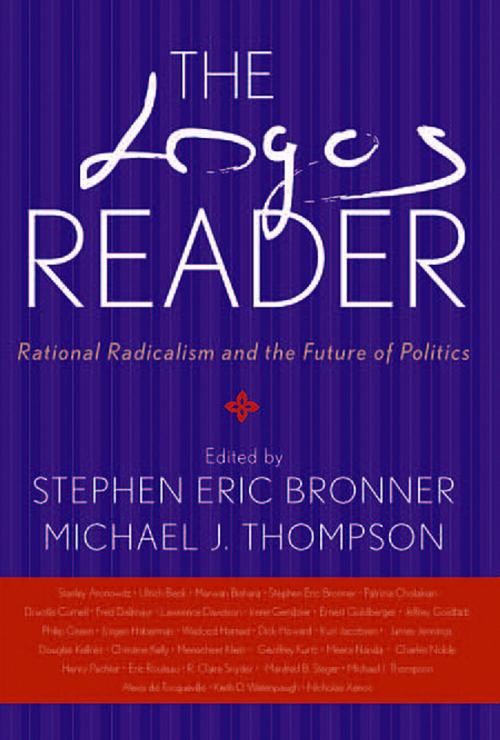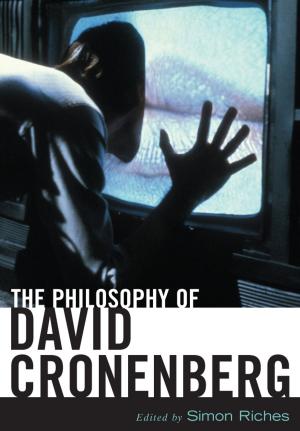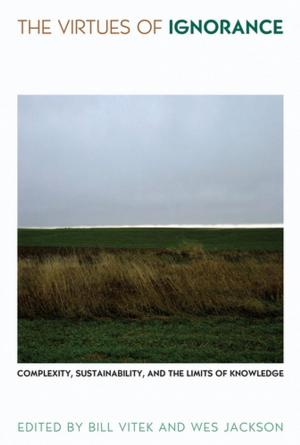The Logos Reader
Rational Radicalism and the Future of Politics
Nonfiction, Social & Cultural Studies, Political Science, Politics, History & Theory| Author: | ISBN: | 9780813136998 | |
| Publisher: | The University Press of Kentucky | Publication: | January 13, 2005 |
| Imprint: | The University Press of Kentucky | Language: | English |
| Author: | |
| ISBN: | 9780813136998 |
| Publisher: | The University Press of Kentucky |
| Publication: | January 13, 2005 |
| Imprint: | The University Press of Kentucky |
| Language: | English |
The online publication Logos: A Journal of Modern Society and Culture was launched in response to the atmosphere of triumphant conservatism and militarism that pervades American political culture in the aftermath of 9/11. Aiming to revitalize the moribund political left, several world-renowned intellectual figures congregated to form the journal's core group of editors and writers. The mission of Logos is to promote "rational radicalism," grounded in critical social theory and fully engaged with the most vital issues of our time. The Logos Reader: Rational Radicalism and the Future of Politics offers the best political writing published by the journal during its first three years. Compiled by founding editors Stephen Eric Bronner and Michael J. Thompson, these pieces critically examine globalization, the Iraq War, and the plight of the Middle East, while also illuminating the domestic concerns that dominate American discourse. Delivered in a direct, accessible manner, the analyses presented in The Logos Reader reflect the journal's distinctly public purpose. The essays reveal both the practical and theoretical connections between distant military pursuits and domestic struggles for democracy and equality. The left's leading intellectuals shed light on the most recent developments in the global war on terrorism while sharply criticizing right-wing justifications for restricted civil liberties, human rights violations, and rampant expansion of armaments. Similar attention is given to central domestic issues, such as the conservative right's assault on the welfare state and the crusade of religious fundamentalists against civil rights protections for all citizens. Negotiating the vast terrain of current social problems, the contributors are united in their intent to question and ultimately constrain the excessive power wielded by dominant cultural, political, and economic institutions. This collection stakes out firm ideological ground and challenges authoritarian forces, clarifying the notion of rational radicalism as a liberating counterpoint to limiting worldviews and systems of oppression.
The online publication Logos: A Journal of Modern Society and Culture was launched in response to the atmosphere of triumphant conservatism and militarism that pervades American political culture in the aftermath of 9/11. Aiming to revitalize the moribund political left, several world-renowned intellectual figures congregated to form the journal's core group of editors and writers. The mission of Logos is to promote "rational radicalism," grounded in critical social theory and fully engaged with the most vital issues of our time. The Logos Reader: Rational Radicalism and the Future of Politics offers the best political writing published by the journal during its first three years. Compiled by founding editors Stephen Eric Bronner and Michael J. Thompson, these pieces critically examine globalization, the Iraq War, and the plight of the Middle East, while also illuminating the domestic concerns that dominate American discourse. Delivered in a direct, accessible manner, the analyses presented in The Logos Reader reflect the journal's distinctly public purpose. The essays reveal both the practical and theoretical connections between distant military pursuits and domestic struggles for democracy and equality. The left's leading intellectuals shed light on the most recent developments in the global war on terrorism while sharply criticizing right-wing justifications for restricted civil liberties, human rights violations, and rampant expansion of armaments. Similar attention is given to central domestic issues, such as the conservative right's assault on the welfare state and the crusade of religious fundamentalists against civil rights protections for all citizens. Negotiating the vast terrain of current social problems, the contributors are united in their intent to question and ultimately constrain the excessive power wielded by dominant cultural, political, and economic institutions. This collection stakes out firm ideological ground and challenges authoritarian forces, clarifying the notion of rational radicalism as a liberating counterpoint to limiting worldviews and systems of oppression.















